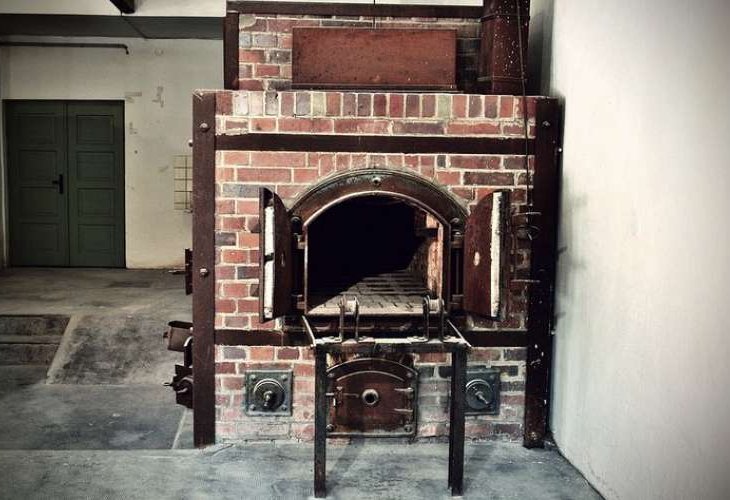Facts in Judaism
Why Jewish Law Prohibits Cremation: The Biblical Commandment of Burial and the Sanctity of the Body
Understanding the Torah's View on Cremation, Burial, and the Resurrection of the Dead
 Cremation facility
Cremation facilityJewish Burial vs. Cremation: A Torah Perspective
In Judaism, the commandment to bury the dead is not merely a cultural tradition—it is a direct biblical obligation. Maimonides (Rambam), in Sefer HaMitzvot (Positive Commandment 231), identifies the Jewish burial commandment as one of the Torah’s foundational laws. This command applies to all individuals, including those executed by the courts. As it says in Deuteronomy 21:22–23:
“If a man is guilty of a capital offense and is put to death, and you impale him on a stake, you must not let his corpse remain on the stake overnight, but must bury him the same day.”
This mitzvah reflects the profound sanctity of the human body and its connection to the land gifted by Hashem.
Why Cremation Is Forbidden in Jewish Law
Judaism strictly forbids cremation. Leading halachic authorities across generations have ruled it a severe transgression for multiple reasons:
Negation of the mitzvah of burial (Melamed L’hoil, Yoreh Deah 114)
Desecration of the deceased
Violation of the commandment not to leave a body unburied overnight (Achiezer, Part 1, Section 72)
Transgression of “Do not follow their statutes” (Daat Kohen, Yoreh Deah 197)
Undermining belief in techiyat hameitim – the resurrection of the dead (Achiezer, Part 3, Section 72)
Cremation Denies the Resurrection of the Dead
Rabbi Chaim Ozer Grodzinski clearly rules against cremation, citing the Beit Yitzchak and Talmudic sources:
“One who buries their dead expresses belief in the resurrection of the dead, while one who cremates is as if they deny it.”
Cremation stands in direct opposition to core Jewish beliefs, especially the idea that our bodies will one day be revived and reunited with our souls in the era of redemption.
Jewish Law Invalidates Wills Requesting Cremation
Due to the seriousness of the prohibition, Jewish law invalidates any will that requests cremation. The Jerusalem Talmud (Ketubot, Chapter 11), as explained by the Beit Yitzchak, rules that such instructions have no legal validity. The deceased must be buried according to halachic tradition, regardless of personal requests.
The Jewish View of the Body: Created in the Image of God
In Judaism, the body is not merely a container for the soul—it is created in the Divine image (Tzelem Elokim). Our physical form allows us to serve Hashem, confront temptation, and grow spiritually.
As stated in Pirkei Avot:
“Better one hour of repentance and good deeds in this world than all the life of the World to Come.”
It is through the challenges of the physical world that we achieve spiritual elevation. Cremation, which destroys the body, disrespects this Divine mission.
Why Burial Honors the Soul and the Body
Judaism teaches that even when a person requests cremation, it should not be honored. The human body served as a vessel for holiness and mitzvot. Burning it not only desecrates that vessel, but denies the temporary nature of death.
While Judaism affirms that those burned al Kiddush Hashem (sanctifying God’s name) will certainly rise in the resurrection, choosing cremation reflects a lack of belief in this core principle.
Resurrection of the Dead: A Fundamental Jewish Belief
The belief in techiyat hameitim (resurrection of the dead) is central to Judaism. It is included in the daily prayers and in Maimonides’ Thirteen Principles of Faith. Cremation contradicts this belief by implying final separation from the body.
But in truth, death is temporary. Hashem will one day restore life to all the righteous. As the sages say, “Blessed are You, Hashem, who revives the dead.” Choosing Jewish burial affirms that faith.
Conclusion: Burial Reflects Jewish Faith and Respect for Life
In summary, the Torah’s laws of burial are not just rituals—they are expressions of Jewish faith, dignity, and truth. Burial:
Honors the Divine image of the human body
Upholds the Torah’s commandments
Affirms belief in resurrection
Ensures spiritual continuity across generations
Cremation in Judaism is not just discouraged—it is prohibited. By choosing a halachic burial, we align ourselves with the will of Hashem, the heritage of our ancestors, and the hope of our future.

